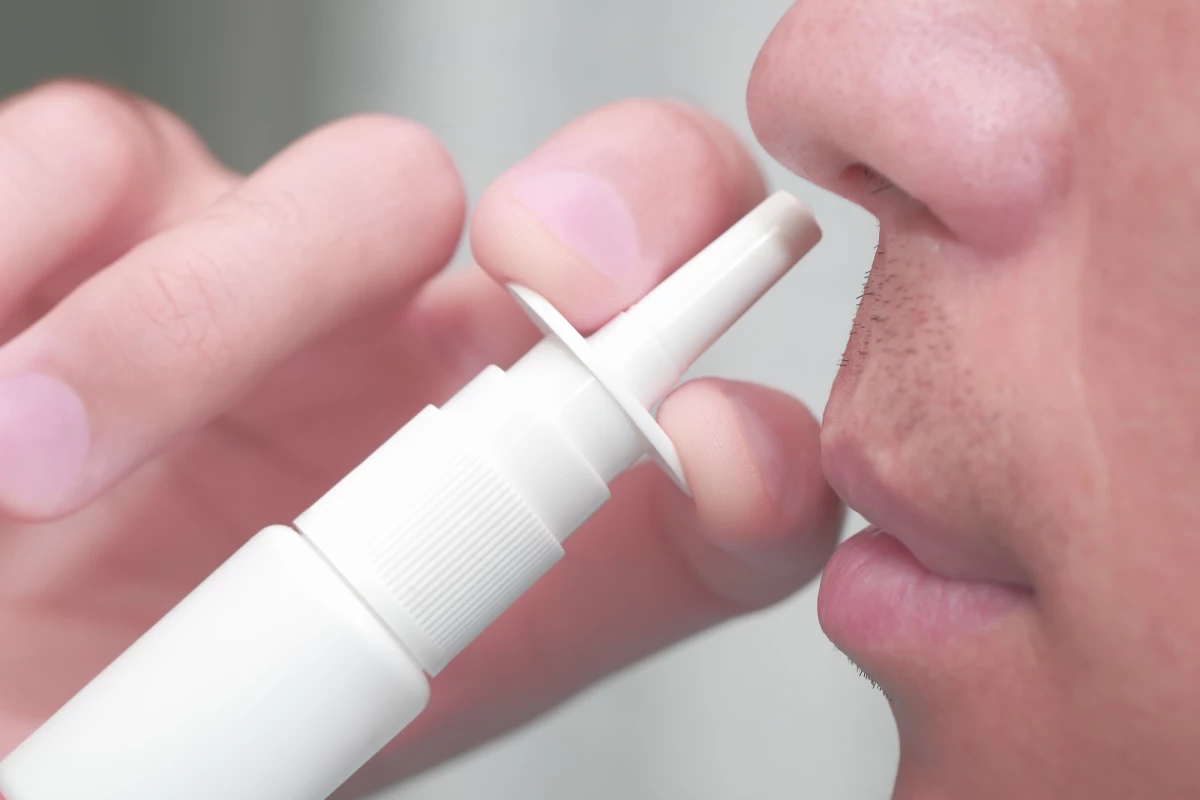A new study in the journal Science Advances presents the latest research demonstrating the potential effectiveness of an inhalable COVID-19 vaccine. The vaccine is one of several in development designed to be administered through a nasal spray.
"The currently available vaccines against COVID-19 are very successful, but the majority of the world's population is still unvaccinated and there is a critical need for more vaccines that are easy to use and effective at stopping disease and transmission," explains Paul McCray, a researcher from the University of Iowa working on an inhalable COVID-19 vaccine.
McCray is working alongside colleagues from the University of Georgia on a single-dose COVID-19 vaccine delivered via a nasal spray. Their particular vaccine utilizes a virus called parainfluenza virus 5 (PIV5), optimized to express the spike protein from SARS-CoV-2.
PIV5 is harmless in humans and previous experiments with the virus as a vaccine delivery system have been effective in animal studies against MERS, another coronavirus. The new data demonstrates the experimental COVID-19 vaccine is effective in mice and ferrets.
"We have been developing this vaccine platform for more than 20 years, and we began working on new vaccine formulations to combat COVID-19 during the early days of the pandemic," says co-lead on the study, Biao He, from the University of Georgia. "Our preclinical data show that this vaccine not only protects against infection, but also significantly reduces the chances of transmission."
Traditional vaccines are usually administered by an intramuscular injection. But injections come with a whole load of hurdles making widespread vaccination campaigns complicated and costly. Injected vaccines often need cold storage and must be administered by medical professionals. Syringes are also a finite resource and supply problems have caused major issues with the COVID-19 vaccine roll-out.
One nasal spray vaccine is currently in the market. Called FluMist the vaccine targets influenza and, despite being approved for around a decade, its effectiveness has varied from year to year. For several years both the American Academy of Pediatrics and the Centers of Disease Control and Prevention recommended the injectable flu vaccine over this inhalable version, but recently changed that advice after a new formulation showed improved efficacy in the 2019-20 flu season.
Alongside the ease of administration of a nasal spray vaccine there is a strong hypothesis suggesting delivering vaccines directly to mucosal tissue in the upper respiratory tract could offer better localized protection from infection. Darrell Irvine, a bioengineer from MIT, has been working on developing inhalable vaccines for several years.
“In some cases, vaccines given in muscle can elicit immunity at mucosal surfaces, but there is a general principle that if you vaccinate through the mucosal surface, you tend to elicit a stronger protection at that site,” says Irvine. “Unfortunately, we don’t have great technologies yet for mounting immune responses that specifically protect those mucosal surfaces.”
A study from Irvine’s MIT team published earlier this year demonstrated great efficacy with a novel method attaching peptide vaccines to albumin proteins. Mouse studies showed the inhalable vaccine generated a 25-fold increase in immune T cells compared to the same vaccine injected into muscle.
A small number of inhalable COVID-19 vaccines are now in early-stage human trials. Early in 2021 researchers from Oxford University commenced Phase 1 human trials for a nasal spray version of its ChAdOx1 nCoV-19 vaccine (now more familiar as the AstraZeneca COVID-19 vaccine).
Sandy Douglas, chief investigator on the trial, says they are initially studying the nasal spray’s safety profile in young, healthy volunteers. It is hoped delivering the COVID-19 vaccine through upper respiratory tissue could offer better protection against mild disease and onward transmission, but Douglas also notes inhalable administration should increase vaccine uptake as well.
"There are a variety of people who will find an intranasal delivery system more appealing, which may mean vaccine uptake is higher in those groups,” says Douglas. "It might also have practical advantages – nasal sprays have been used successfully for other vaccines, for example the flu vaccine used in UK schools."
Overall there are around seven intranasal COVID-19 vaccines currently in early human trial stages but it is still unclear whether this route of administration will work effectively for SARS-CoV-2. Most recently, pharma company Altimmune discontinued work on its inhalable vaccine candidate after Phase 1 human trials showed weak immune responses.
Richard Kennedy, an immune researcher at the Mayo Clinic, says it seems increasingly clear inhalable vaccines will not work for all pathogens. Several research dead-ends over the past decade indicate developing a nasal spray COVID-19 vaccine may not be a simple task, but hopefully with research moving at a rapid pace we will have some answers over the next year.
"There are not many licensed mucosal vaccines," Kennedy said recently to MedPage Today. "These vaccines are effective for certain pathogens, but this may or may not be true for SARS-CoV-2."
The new study was published in the journal Science Advances.
Source: Carver College of Medicine




